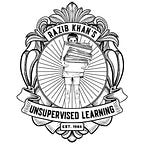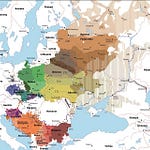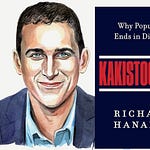If you have a sibling with autism, your future child’s risk for an autism diagnosis is increased by a factor of 2 to 3.5×. Orchid’s whole genome embryo reports can help mitigate your child’s risk by screening for over 200 genetic variants definitively linked to autism and other neurodevelopmental disorders. Discuss your situation with a genetics expert.
On this episode of Unsupervised Learning Razib talks to economist Sam Hammond. Canadian-born Hammond serves as the Senior Economist at the Foundation for American Innovation. His work primarily focuses on innovation and science policy, with particular attention to the societal and institutional impacts of disruptive technologies such as artificial intelligence.
Before his role at FAI, Hammond was Director of Poverty and Welfare Policy at the Niskanen Center. Hammond also held a research fellowship at the Mercatus Center at George Mason University, focusing on policy issues related to technology and regulation. He holds a BA in Economics from Saint Mary’s University and MA's in Economics from George Mason University and Carleton University.
After a quick discussion about Canadian housing, Razib and Hammond consider his piece 95 theses about AI. Hammond’s contention is that AI might prove as impactful as the printing press, or, at the outer edge equivalent to photosynthesis. Nearly two years into the current “AI hype cycle” we still haven’t found the “killer app” of AI, but thinkers like Hammond are getting ahead of the likely inevitable societal changes. He believes that change is inevitable, and the details that need to be worked out are how we as a species adapt and evolve in response to our technology. Hammond contends that the AI-revolution is likely to produce changes in the next generation analogous to industrial transformations of the late 19th centuries and early 20th centuries, when cars, electrification and airplanes transformed civilization.














